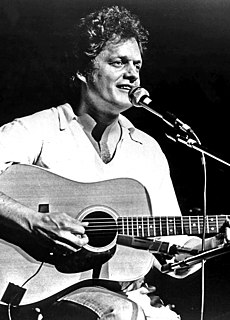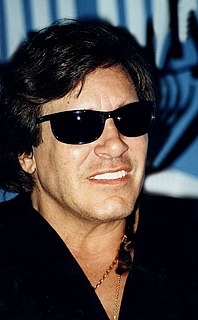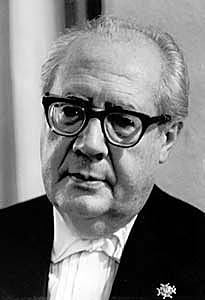A Quote by Harry Chapin
The very day I purchased it, I christened my guitar as my monophonic symphony, six string orchestra.
Related Quotes
My ex-wife was trying to be nice once, so she took me to a concert in Los Angeles. I went with her to Symphony Hall, and the orchestra was playing. When the show started, the spotlight was sharp on this one man (Andres Segovia) and he had sombrero on and his guitar propped up like this and, oh man ... he was a master ! - I really heard it. That one guitar sounded like a whole orchestra to me.
I didn't mean for it to cause such a furor, but I was the first guy to ever do the national anthem with a guitar. Everyone else had the big brass band. Nowadays it's tracks that they sing to, but in my day, we had no tracks. And I was the only orchestra that I knew that was the best orchestra and that was me and my guitar.
I sometimes feel a bit embarrassed to play guitar. There's something - I don't want to sound ungrateful - but there's something very old-fashioned and traditional about it. You meet kids today whose grandparents were in punk bands. It's very old and traditional, but then, so is an orchestra and so is a string section.
I sometimes feel a bit embarrassed to play guitar. There's something - I don't want to sound ungrateful - but there's something very old-fashioned and traditional about it. You meet kids today whose grandparents were in punk bands, really. It's very old and traditional, But then, you know, so is an orchestra and so is the string section.


































